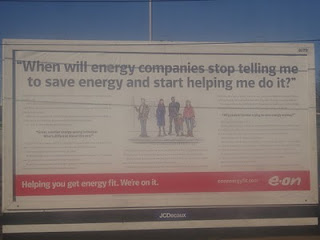Meet The New Year, Same As The Old Year.

In the past year, I've not posted that often. My reasoning was that after four years of blogging, I didn't think I had that much new to write. Marketing isn't rocket-science and genuinely new things don't come along all that often, so I was convinced that everybody must have heard it all before. Of course, if that were true, the conference business would be in a parlous state indeed but the real point is that too many marketers are seduced by the new rather than the useful. I'm not saying ignore the new. Far from it. It's your obligation to be aware of it, to understand it and to evaluate it. But, don't obsess about it to the expense of taking your eye of the ball. Some few elements of the new may have a medium to long term impact on your business, but they will do so in the medium to long term and that's not this year. So, in 2011, dont think about new, think about better. Better may perhaps be something new, but it's more likely to be doing the old























